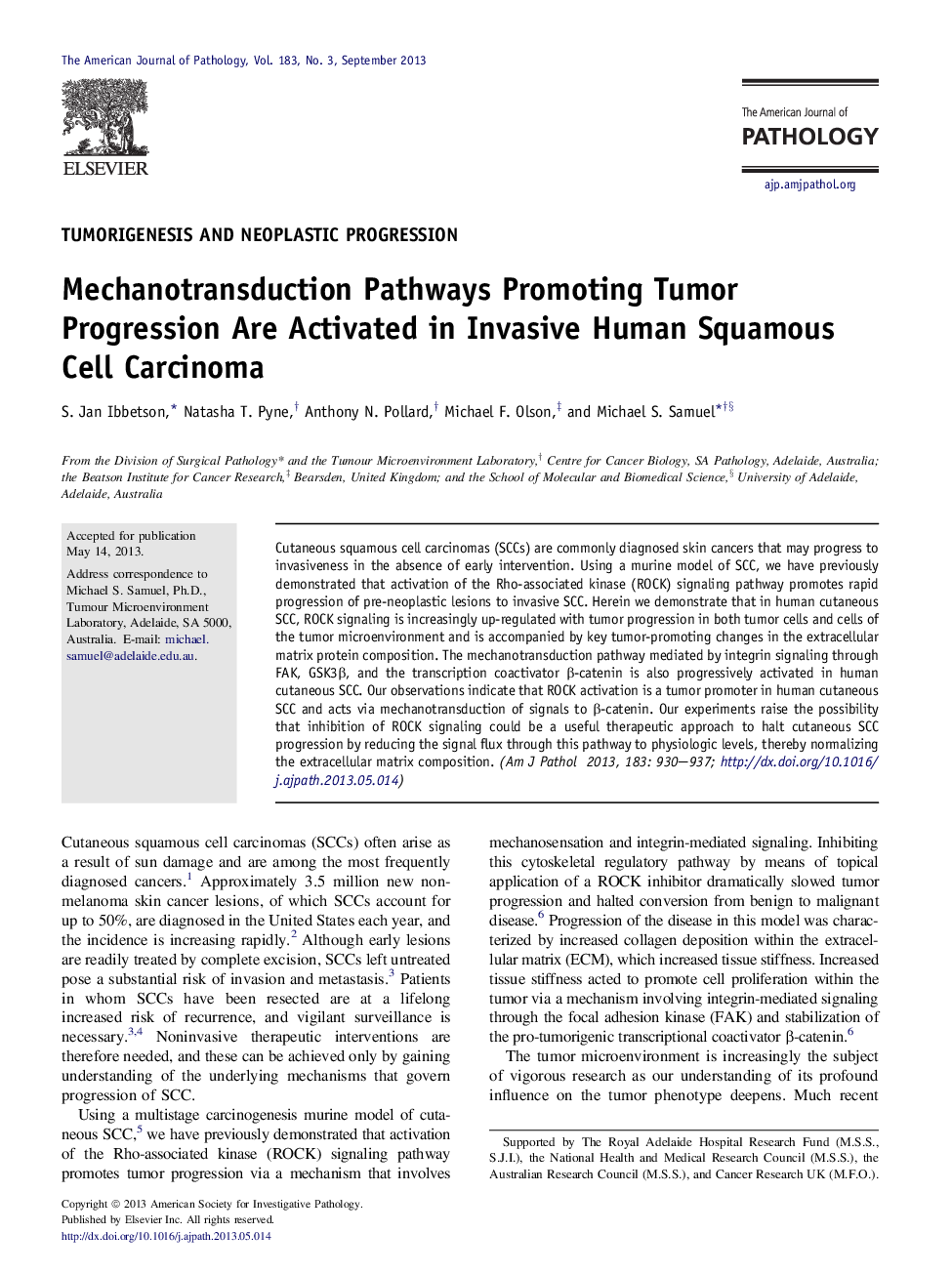| کد مقاله | کد نشریه | سال انتشار | مقاله انگلیسی | نسخه تمام متن |
|---|---|---|---|---|
| 5935850 | 1573401 | 2013 | 8 صفحه PDF | دانلود رایگان |
Cutaneous squamous cell carcinomas (SCCs) are commonly diagnosed skin cancers that may progress to invasiveness in the absence of early intervention. Using a murine model of SCC, we have previously demonstrated that activation of the Rho-associated kinase (ROCK) signaling pathway promotes rapid progression of pre-neoplastic lesions to invasive SCC. Herein we demonstrate that in human cutaneous SCC, ROCK signaling is increasingly up-regulated with tumor progression in both tumor cells and cells of the tumor microenvironment and is accompanied by key tumor-promoting changes in the extracellular matrix protein composition. The mechanotransduction pathway mediated by integrin signaling through FAK, GSK3β, and the transcription coactivator β-catenin is also progressively activated in human cutaneous SCC. Our observations indicate that ROCK activation is a tumor promoter in human cutaneous SCC and acts via mechanotransduction of signals to β-catenin. Our experiments raise the possibility that inhibition of ROCK signaling could be a useful therapeutic approach to halt cutaneous SCC progression by reducing the signal flux through this pathway to physiologic levels, thereby normalizing the extracellular matrix composition.
Journal: The American Journal of Pathology - Volume 183, Issue 3, September 2013, Pages 930-937
